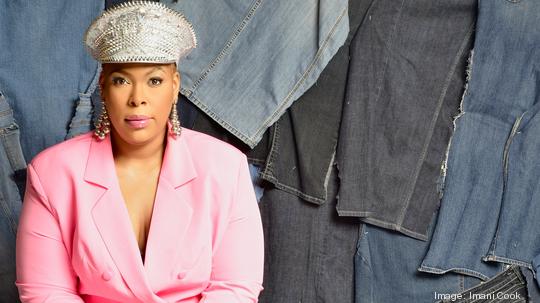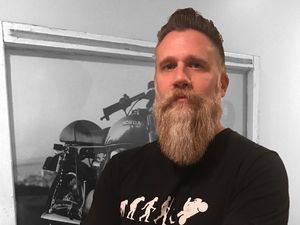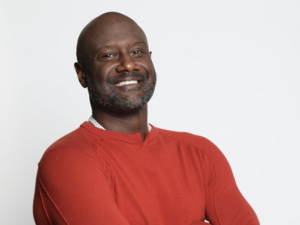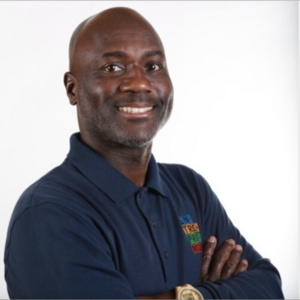
Shawna Stepp-Jones is aiming to launch her no-heat hair dryer this summer, a product aimed at Black women that she hopes will help inspire the next generation of female engineers.
Stepp-Jones is the CEO and founder of Divaneering Lab, a Baltimore startup that aims to both develop innovative products and encourage girls to pursue careers in science, technology, engineering and math (STEM) by offering workshops themed around fashion, health and beauty.
Its first product, Spundle, is a no-heat dryer for wigs and hair extensions that has finally made it into the research and development stage after more than five years. Stepp-Jones, who holds engineering degrees from Morgan State University and Johns Hopkins University, said the product could revolutionize how hair extension bundles are dried, turning what's normally a 24-hour process into a 15-minute one.
However, the West Baltimore native faced many challenges convincing investors in the overwhelmingly white world of venture capitalism to fund her projects. Despite this, Stepp-Jones said she is focused on using Divaneering Labs to "innovate, impact and inspire," hoping to draw more women and girls to the world of STEM.
“What I’m doing is creating…a community for women and girls to want to be educated on STEM and technology but also see the real practical application of it,” she said.
A version of Divaneering Lab — then known as Divaneering Inc. — got its start in 2013 as part of a platform Stepp-Jones ran on for the Miss America Plus Maryland pageant. The company began as a nonprofit before Stepp-Jones switched to a for-profit model in 2019.
Spundle, meanwhile, grew out of an experience Stepp-Jones had in Atlanta while working as a patent examiner for the U.S. Patent and Trademark Office in 2016. Stepp-Jones was frustrated by the fact that it took her hair extensions, or bundles, 24 hours to dry. This meant she had to drive nearly an hour each way to her hairdresser the day before her appointment to drop off her bundles so they could be dyed and have enough time to dry before being put in the next day.
She figured there had to be a better way and began working on the design for Spundle. Instead of using heat, which can damage hair, Spundle has a centrifuge that spins the hair to dry it in just 15 minutes, Stepp-Jones said.
But getting others to support her idea proved a challenge. Stepp-Jones said many investors told her she was too “pre-product,” since she didn’t yet have a fully fleshed-out model.
However, given that Spundle is primarily catering to Black women, Stepp-Jones said she didn't think investors really understood the market potential.
Eager to get her company off the ground and desperate to leave her job at the patent office — patent examiners are barred from filing patents — Stepp-Jones made the decision to become a surrogate. That allowed her to start bootstrapping the company and gave her the funds to leave the patent office and get a concept design done for Spundle, she said.
“It’s often the go-to answer [from investors] when you’re building hardware…[to say] ‘you’re pre-product.’ Well, how am I ever going to get to the product if no one will invest in and believe I can make this happen?” Stepp-Jones said. “So that’s when you do things like becoming a surrogate and things like that just to show them, this is ridiculous but it’s worth it, and I’m going to have to — like most Black women — do more extreme things to really get the true honor and opportunity that everyone else has.”
Stepp-Jones’ struggle for investment is part of a larger pattern in the tech industry. Nationwide, Black female startup founders received just 0.34% of the total venture capital spent in the U.S. through mid-July last year, according to Crunchbase. Representation isn’t much better on the other side of the table; a 2020 report compiled by the National Venture Capital Association, Venture Forward and Deloitte found that only 4% of VCs are Black.
Despite those odds, Stepp-Jones has been able to move Divaneering Labs forward. The company is in month seven of research and development for Spundle with Nashville-based product design firm Ovyl, and Stepp-Jones hopes to start a pilot program for the product with salons this summer. She left her job as a patent examiner in March 2021 to run Divaneering Labs full-time and also has a few other contract employees.
Divaneering Lab also finally got its first venture capital investment last year — $250,000 from Rarebreed Ventures, a Baltimore-based firm that focuses on investing in underestimated founders. Stepp-Jones said she is also preparing to launch a new funding round in April with the goal of raising $600,000 for customer discovery and validation, developing a go-to-market strategy and hiring staff. She is already in talks with several venture capital firms and is also now a member of the TechStars Founder Catalyst Program.
Rarebreed founder McKeever “Mac” Conwell and Stepp-Jones went to Morgan State University together and Conwell has said that Stepp-Jones’ work inspired him to start the firm. (Conwell recently closed his first fund — raising $10 million — and is now working on a $75 million fund.)
The emergence of funds like RareBreed and programs like TechStars is one reason Stepp-Jones says she has seen “a great difference” in the past few years in terms of the opportunities and investment available for diverse founders. And she’s excited about what that means for the next generation, including the girls she meets during the STEM workshops she runs in the city under a contract with the Baltimore City Department of Recreation and Parks.
“When we drop Spundle, we will allow these young girls to be one of the first ones to help us with customer discovery so that they can really see, ‘this is how technology works,’" she said. “I really want to inspire them to innovate, and to understand, we have to solve our own problems and how do you do that?...Through Divannering Lab and our initiatives we can hopefully inspire them.”









